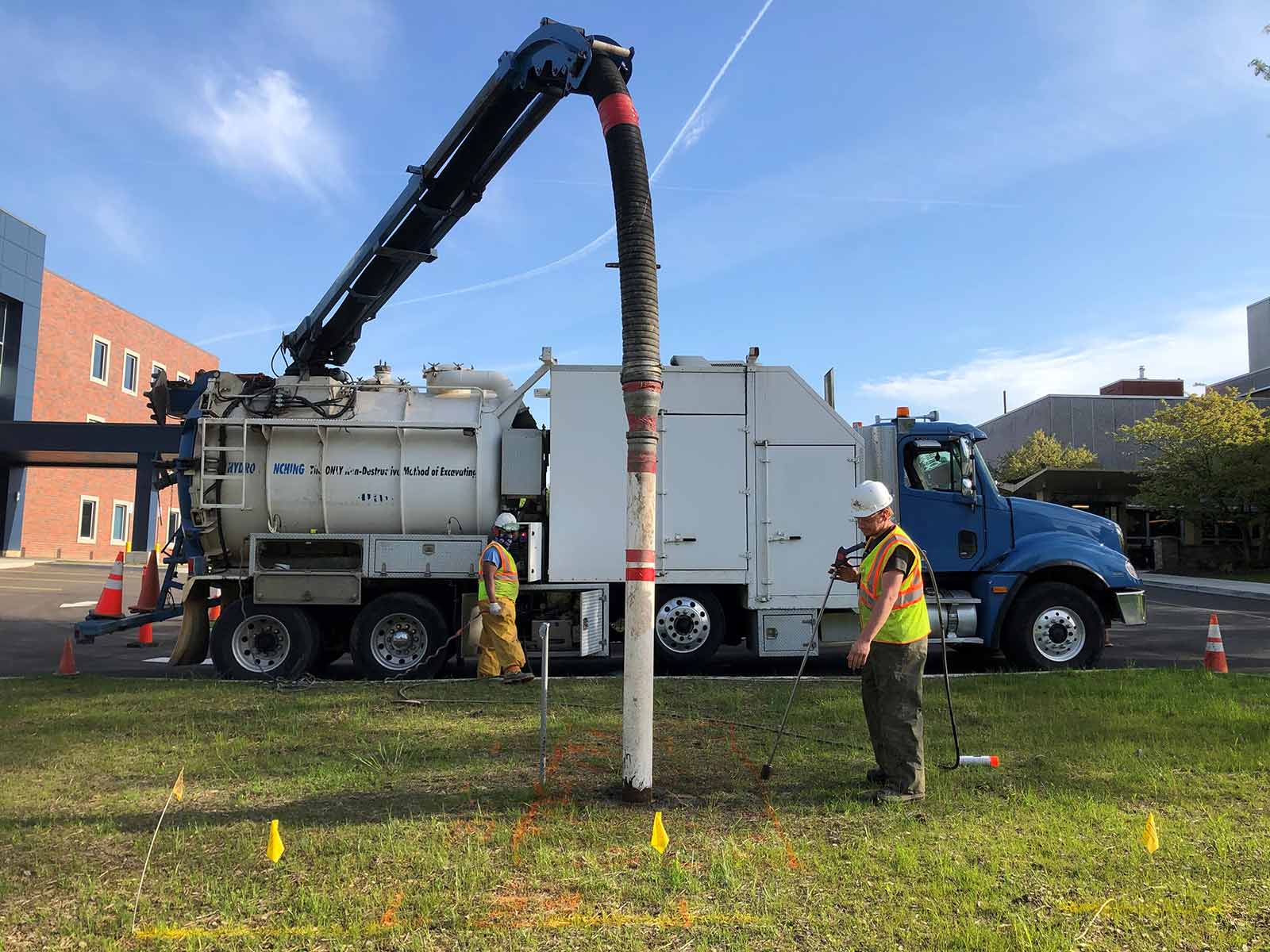Industrial Lancaster Trenching - Trenching Solutions for Companies in Lancaster
Industrial Lancaster Trenching - Trenching Solutions for Companies in Lancaster
Blog Article
Comprehensive Excavation Approaches: Understanding the Basics for Success
The careful planning, specific implementation, and thorough focus to information needed in excavation jobs demand an extensive method that encompasses various fundamental aspects. The real proficiency exists not simply in comprehending these principles however in effortlessly integrating them to navigate the intricacies of excavation jobs with finesse.
Understanding Excavation Task Preparation

Successful excavation projects are improved the structure of extensive and precise planning. The preliminary phase of any kind of excavation project is the preparation stage, where critical choices are made that can substantially influence the result of the task. During this phase, it is necessary to collect all appropriate details about the website, including topographical studies, soil make-up, and any kind of prospective hazards that might exist. Comprehending the project timeline, extent, and budget plan restrictions is critical for creating a detailed excavation plan that guarantees the task's success.
One trick facet of excavation job preparation is the advancement of a thorough timeline that lays out the sequence of milestones, tasks, and deadlines. This timeline functions as a roadmap for the project team, permitting them to track development and make essential adjustments to make sure the task remains on routine. In addition, a well-defined budget that accounts for all expenses, including tools rental, labor expenses, and materials, is crucial for staying clear of price overruns and hold-ups. By meticulously taking into consideration all these aspects during the preparation stage, excavation jobs can be executed efficiently and successfully, resulting in effective end results.
Soil Evaluation and Site Examination
Carrying out comprehensive soil evaluation and website examination is an essential action in the preparation phase of any type of excavation project. Dirt analysis includes figuring out the composition, framework, and buildings of the dirt at the excavation site. This information is crucial for recognizing the soil's bearing capacity, wetness content, and potential for erosion, which are key aspects in identifying the excavation methods and devices needed for the task.
Site examination goes past dirt evaluation and includes a more comprehensive analysis of the overall website conditions. This analysis consists of identifying any prospective threats, such as below ground utilities, environmental worries, or unpredictable surface, that can impact the excavation process. By completely reviewing the website, task supervisors can establish efficient excavation approaches that focus on safety and security, efficiency, and environmental security.
Using innovative technologies like ground-penetrating radar, soil tasting, and drone studies can enhance the precision and efficiency of dirt evaluation and website analysis. Spending time and resources in these preliminary actions can ultimately save time and avoid expensive hold-ups or problems throughout the excavation process.
Devices Selection and Use
Effective excavation tasks rely greatly on critical equipment great site choice and application to guarantee ideal efficiency and performance. Choosing the best tools for the job is essential in making best use of performance and reducing downtime. Aspects such as the sort of dirt, deepness of excavation, and job range play a significant duty in figuring out the most appropriate equipment for the job handy.

Along with selecting the ideal tools, appropriate application is crucial to job why not find out more success. Operators must be educated to take care of the devices safely and successfully - septic ohio. Routine upkeep checks and prompt repair work assist stop failures and guarantee consistent efficiency throughout the project
Precaution and Regulations Compliance
In the world of excavation projects, prioritizing safety and security measures and compliance with guidelines is critical to guaranteeing a legally audio and secure functional environment. Security steps incorporate a series of techniques, including conducting comprehensive website evaluations, implementing correct signs and barriers, and giving sufficient safety and security training for all personnel associated with the excavation process. Adherence to laws, such as OSHA requirements in the USA, ensures that the excavation project fulfills the needed requirements to shield employees, bystanders, and the surrounding atmosphere.

Surveillance Progression and Adjusting Methods
Exactly how can project supervisors successfully track the improvement of excavation projects and adjust their methods appropriately to enhance results? Surveillance progression is vital for making certain that excavation tasks remain on track and meet target dates. Job managers can make use of different devices and strategies to track progression, such as everyday report card, routine website assessments, and progressed tracking technologies like drones and general practitioners tracking systems. By constantly keeping track of the task's development, supervisors can determine any kind of prospective hold-ups or issues beforehand and take proactive actions to address them.

Final Thought
To conclude, grasping the fundamentals of comprehensive excavation strategies is important for the success of any project. By understanding task planning, evaluating dirt and site conditions, choosing suitable equipment, abiding with safety and security guidelines, and keeping an eye on progress, project supervisors can make sure a smooth and effective excavation process. Applying these techniques will certainly result in effective outcomes and lessen potential dangers or setbacks during the excavation task.
The initial phase of any kind of excavation project is the planning phase, where crucial choices are made that can significantly affect the end result of the task. Comprehending the job timeline, range, and budget constraints is critical for developing a thorough excavation plan that makes sure the task's success.
How can forecast supervisors properly track the improvement of excavation projects and adapt their methods accordingly to maximize results? By closely monitoring progress image source and being prepared to adjust approaches, project managers can enhance the overall success of excavation tasks.
By comprehending project preparation, evaluating dirt and website conditions, selecting proper equipment, complying with safety and security laws, and monitoring progress, job supervisors can make certain a reliable and smooth excavation process.
Report this page